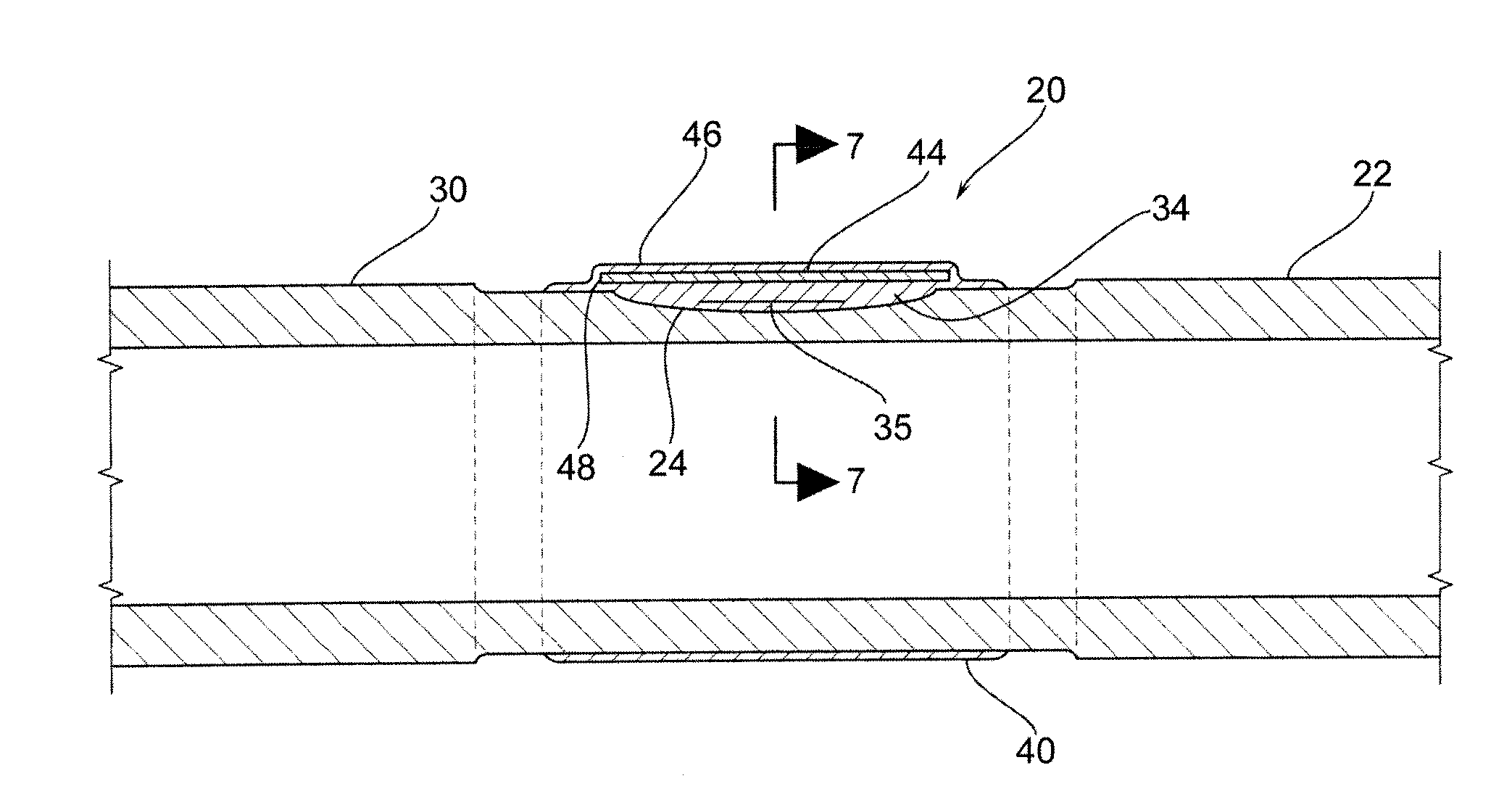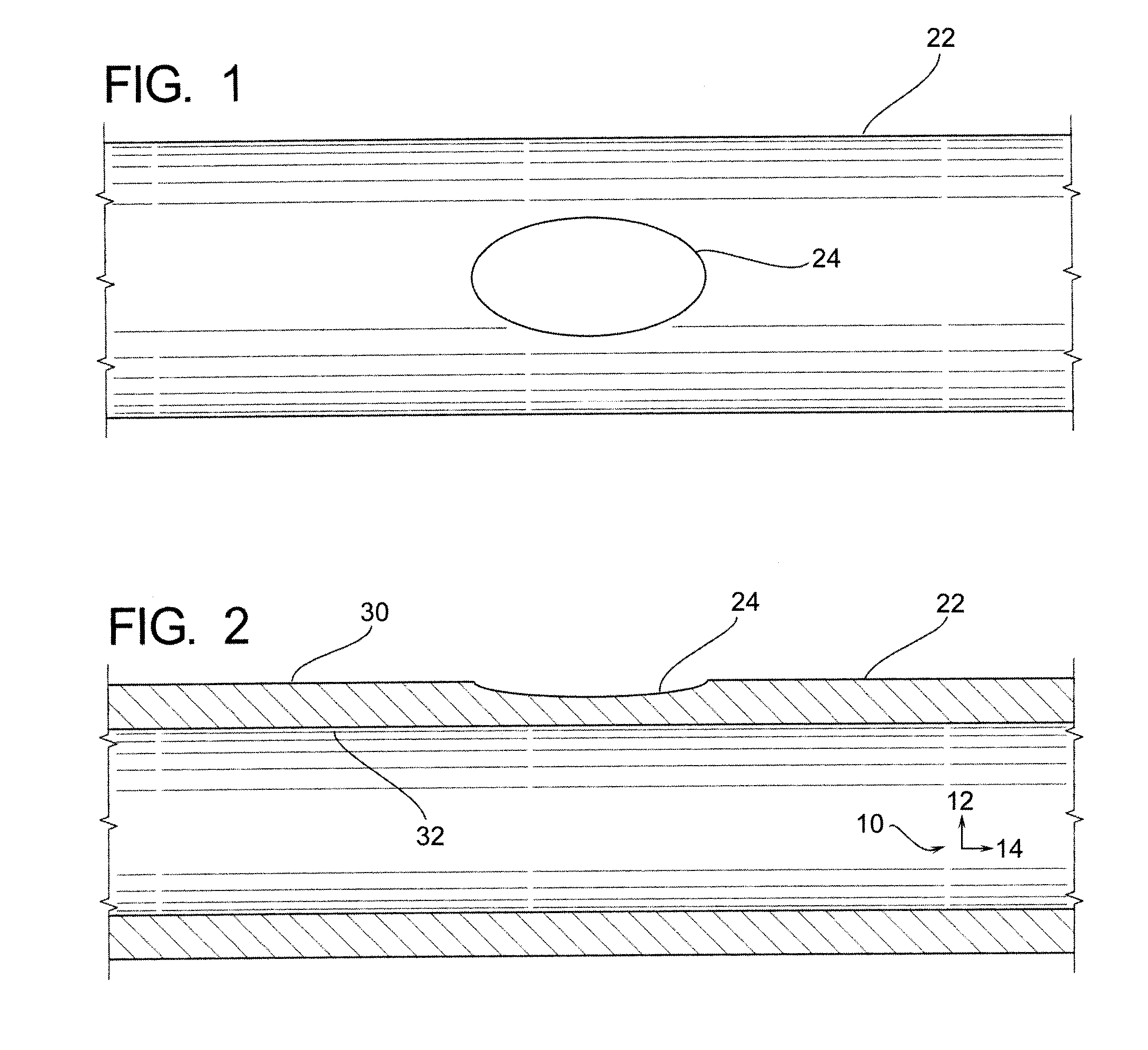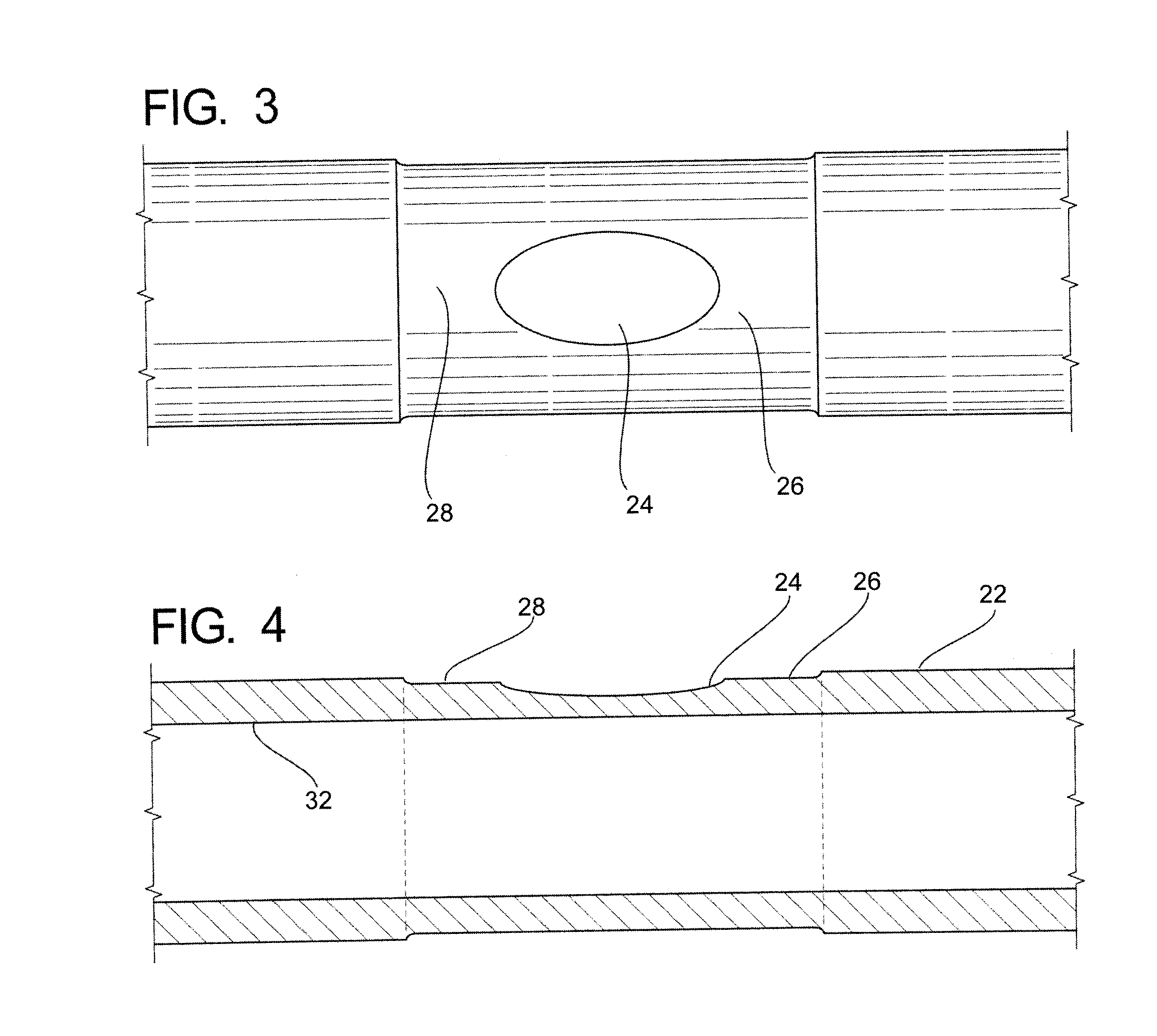Repair apparatus and method for pipe and fittings
a technology for pipes and fittings, applied in mechanical equipment, pipes/joints/fittings, pipes, etc., can solve the problems of insufficient adhesion of adhesives commonly used for repairing structures such as pipes to the surface of thermoplastic, pe, mdpe, hdpe pipes, pipes and fittings, and achieve the effect of increasing the down time of the system
- Summary
- Abstract
- Description
- Claims
- Application Information
AI Technical Summary
Benefits of technology
Problems solved by technology
Method used
Image
Examples
Embodiment Construction
[0064]There have been several attempts to repair such damaged pipes, covers, fittings and structures; however, they have all proven insufficient for one reason or another. Several repair apparatus and methods are disclosed below to help in understanding the status of the field of art. However, these methods are not meant to be a complete disclosure of prior art solutions. They are representative examples of repairs only.
[0065]Prior art approaches to repairs of polyethylene and other types of pipe and structures often involve removing and replacing the damaged portion of pipe with a new section of pipe. Such repairs are disclosed in U.S. Pat. No. 5,254,824 which discloses a process of coupling the repair sleeve to the damaged portion using microwave technology. This process not only involves significant work in installing the repair sleeve, it is also problematic in the use of microwave technology for fusing to a structure in the field. This patented method is no stronger than the or...
PUM
| Property | Measurement | Unit |
|---|---|---|
| Fraction | aaaaa | aaaaa |
| Pressure | aaaaa | aaaaa |
| Density | aaaaa | aaaaa |
Abstract
Description
Claims
Application Information
 Login to View More
Login to View More - R&D
- Intellectual Property
- Life Sciences
- Materials
- Tech Scout
- Unparalleled Data Quality
- Higher Quality Content
- 60% Fewer Hallucinations
Browse by: Latest US Patents, China's latest patents, Technical Efficacy Thesaurus, Application Domain, Technology Topic, Popular Technical Reports.
© 2025 PatSnap. All rights reserved.Legal|Privacy policy|Modern Slavery Act Transparency Statement|Sitemap|About US| Contact US: help@patsnap.com



